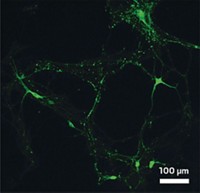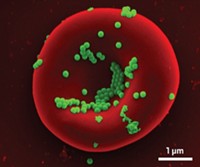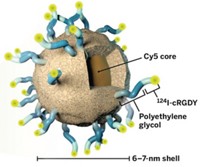Advertisement
Grab your lab coat. Let's get started
Welcome!
Welcome!
Create an account below to get 6 C&EN articles per month, receive newsletters and more - all free.
It seems this is your first time logging in online. Please enter the following information to continue.
As an ACS member you automatically get access to this site. All we need is few more details to create your reading experience.
Not you? Sign in with a different account.
Not you? Sign in with a different account.
ERROR 1
ERROR 1
ERROR 2
ERROR 2
ERROR 2
ERROR 2
ERROR 2
Password and Confirm password must match.
If you have an ACS member number, please enter it here so we can link this account to your membership. (optional)
ERROR 2
ACS values your privacy. By submitting your information, you are gaining access to C&EN and subscribing to our weekly newsletter. We use the information you provide to make your reading experience better, and we will never sell your data to third party members.
Analytical Chemistry
Evaluating Nanoparticle Stability In Vivo
Materials: Polymer coatings on metal nanoparticles may be stripped off after injection into mammals
by Mitch Jacoby
June 22, 2015
| A version of this story appeared in
Volume 93, Issue 25
Simple in vitro assays that evaluate the stability of polymer-coated nanoparticles may not accurately predict the nanoparticles’ fate after injection into mammals, according to a study (Nat. Nanotechnol. 2015, DOI: 10.1038/nnano.2015.111). Metal nanoparticles, which are being evaluated for numerous pharmaceutical applications, are typically wrapped in a polymer shell to stabilize the particles and prevent agglomeration. But what happens to the core-shell structures in vivo is not well-known. To answer that question, a team led by Wolfgang G. Kreyling of the German Research Center for Environmental Health, in Munich, and Wolfgang J. Parak of Philipps University, in Marburg, Germany, prepared radiolabeled gold (198Au) nanoparticle cores, coated them with a polymer containing a different radiolabel (111In), and injected the coated particles into rats. Analyses of tissues and organs show that the shells are partially removed in vivo. The nanoparticle cores tend to accumulate in the liver, and fragments of the polymer shells are excreted through the kidneys. In vitro analyses with liver and umbilical cells show that largely intact nanoparticles are localized in endosomal and lysosomal compartments. In vitro control tests show that proteolytic enzymes can decompose the core-shell particles. The team proposes that similar digestion processes occur in vivo.





Join the conversation
Contact the reporter
Submit a Letter to the Editor for publication
Engage with us on Twitter